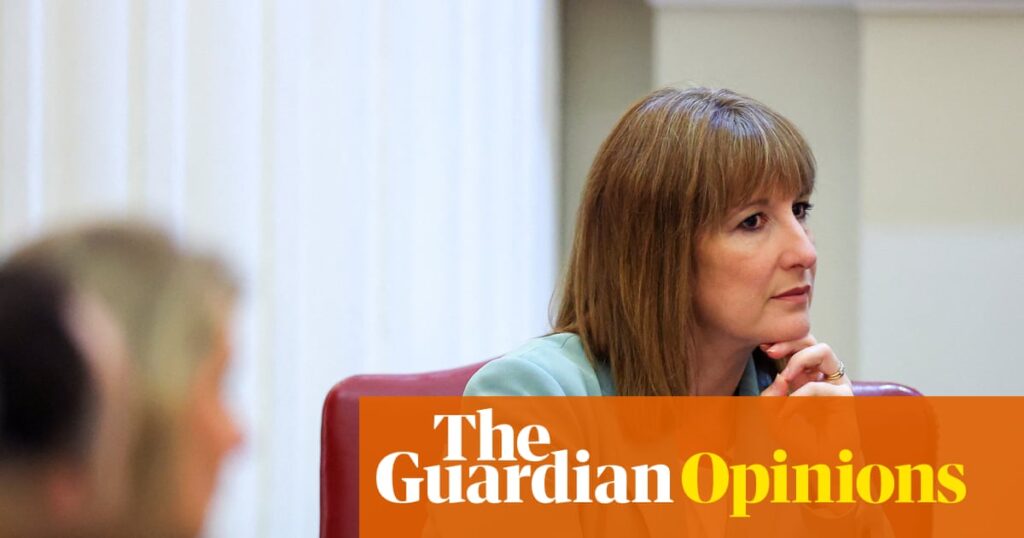Rachel Reeves is rightly proud of being the first female chancellor of the exchequer, but she is far from alone: the commanding heights of economic policymaking in the UK are becoming much less male.
At a Westminster thinktank event last week about whether Labour is still a “mission-led government”, one of the most striking things was not the panel’s answer, which you can probably guess, but the fact that it was made up of three women, and one token man.
The Institute for Government’s director, Hannah White, was joined by its chief economist, Gemma Tetlow, and the no-nonsense new director of the Institute for Fiscal Studies, Helen Miller – as well as Stephen Bush of the Financial Times.
Elsewhere, the Resolution Foundation is now run by Ruth Curtice, a former Treasury economist. Rain Newton-Smith, another economist, has the task of repairing the CBI’s scandal-rocked reputation as its director general.
Two of the four deputy governors of the Bank of England are women, too – as are the leaders of a string of powerful trades unions.
This female takeover has been a quiet and matter-of-fact one – but it marks a significant change, very noticeable upon returning to covering the field, after a few years away.
It has not yet been reflected in the gender balance of students picking economics at GCSE, A-level or as a degree, unfortunately. Research commissioned by the Bank of England showed this year that economics classes at all levels remain about 70% male.
But if anything, that makes it all the more striking that many of the most authoritative voices we will hear, in the run-up to Reeves’s autumn budget, will be female.
Aside from straightforward fairness, there are at least three potential benefits of this feminisation of the economic debate.
The first, which Reeves herself has talked about directly, is the simple power of example: giving girls and young women the perception they could do jobs such as these.
And while it must have been shattering, shedding a few tears at the dispatch box was a powerful part of that: many women of every age will have identified with her.
Women just do cry more than men (a YouGov poll in 2015 found that 45% of women had cried at least once a month in the past year; for men, it was 11%). This has zero bearing on their ability to do their job – and if anything, may point to sincerity, rather than insouciance.
Whatever you think of their policies, Theresa May’s tears as she resigned, surely reflected better on her character than David Cameron’s jaunty little hum.
A second potential benefit of having women at the top of economic policymaking should be better decision-making.
Jill Rutter, a former Treasury official and now senior research fellow at thinktank UK in a Changing Europe, recalls that back in the 1980s “there were virtually no women around the table making tax policy decisions, and it was very interesting, because almost all the senior people there had non-working wives”. She recalls being stared at if, as the junior official present, she piped up to ask how a particular policy might go down with women.
Four decades later, Boris Johnson’s bloke-heavy government was apparently capable of similar myopia.
When senior Cabinet Office official Helen MacNamara testified at the Covid inquiry, she argued that senior women’s voices were all but absent from decision-making in the pandemic. “Decisions were being taken where the impact on women was either lost or ignored,” she said in her written evidence.
after newsletter promotion
MacNamara pointed to a lack of consideration about the demands that school closures would place on families; the potential impact of lockdown on domestic violence victims; and the rules around pregnancy and birth. By contrast, she said, time was found to discuss the implications for “hunting, shooting and fishing”.
Across today’s economic landscape, there are plenty of pressing issues women may feel particularly moved to pursue – not least the gender pay gap (13%), which Reeves has pledged to narrow, and its less-noticed sister, the gender pensions gap (standing at a shocking 35% for private pension savings), which the work and pensions secretary, Liz Kendall, is expected to highlight in a speech on Monday.
The third and more speculative potential upside of having more female economic policymakers, is a shift in the tone of debate.
Not all women are moderate, or reasonable, or ground their arguments in the everyday – Liz Truss is certainly a counterexample – but I would gently suggest that on average, they tend to be a bit less prone to bluster, bravado, and what the kids call “main character syndrome”.
That was why it was depressing on Tuesday to see Reeves at the Mansion House, describing regulation as the “boot on the neck” of British enterprise, in danger of “choking off” innovation.
No doubt the violent language was aimed at grabbing headlines (which it did) and communicating a clear message to her City audience. But it was jarring to read such a brute phrase in a public speech by the UK’s most powerful woman.
There is no shortage of tedious macho language around Keir Starmer – with anonymous briefers proudly telling columnists the prime minister’s politics are “hard Labour”, and accusing MPs of “knobheadery”.
Perhaps as her crunch autumn budget approaches, Reeves can help the government to find a different, more relatable vocabulary.
Judging by the comments of that mainly female panel at the Institute for Government debate on Labour’s first year in power last week, the debate in the coming months will be every bit as robust as ever.
But it will be fascinating to see if it can be conducted in a different, calmer way: and perhaps more closely anchored to what MacNamara argued was missing from that shameful Johnson period: people, and families, and how people actually live their lives.


